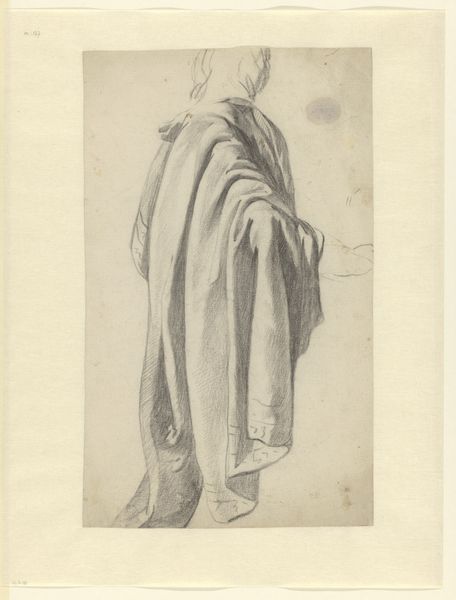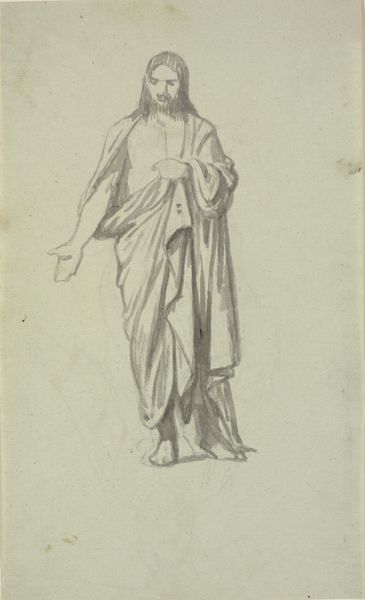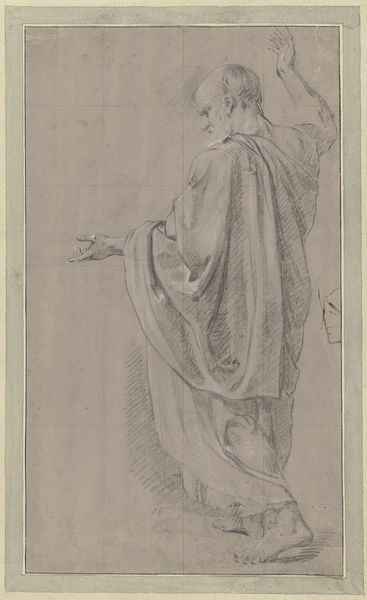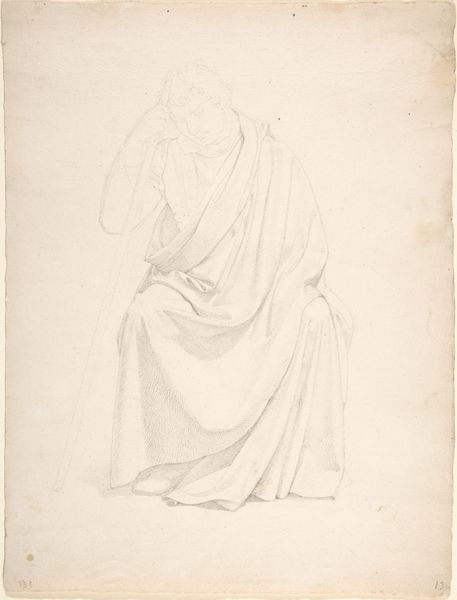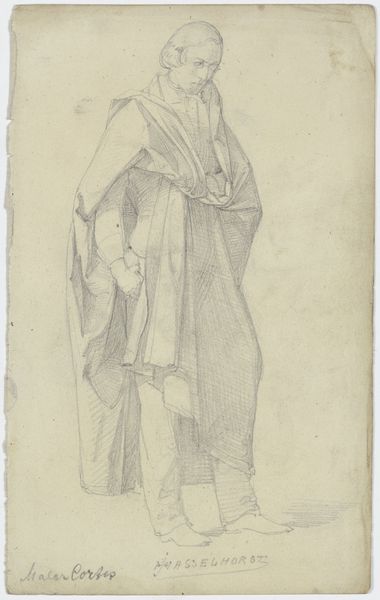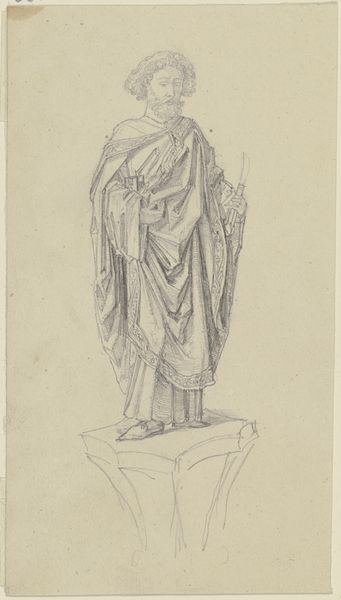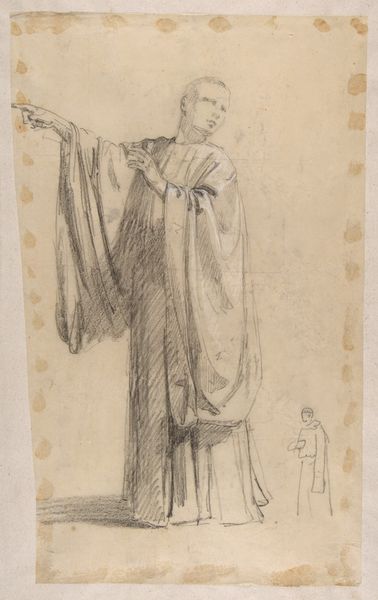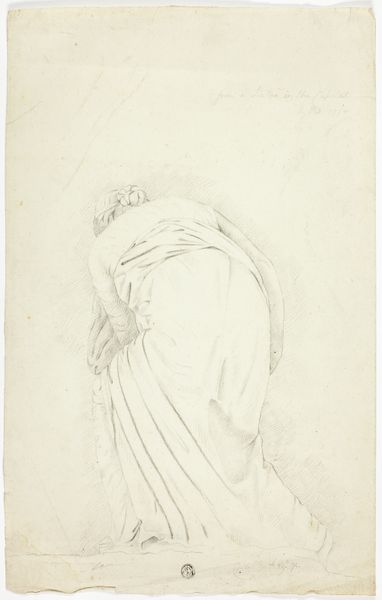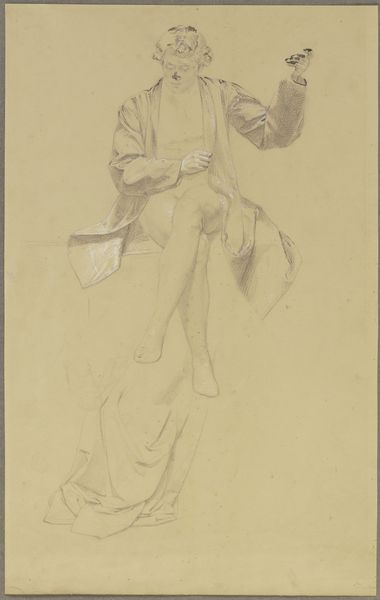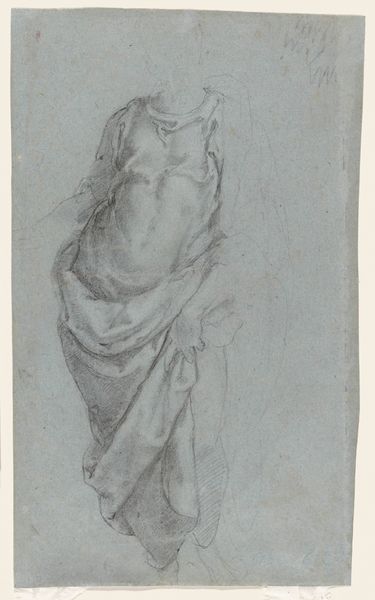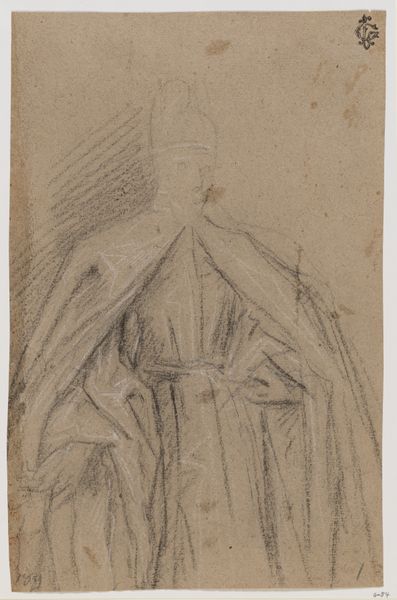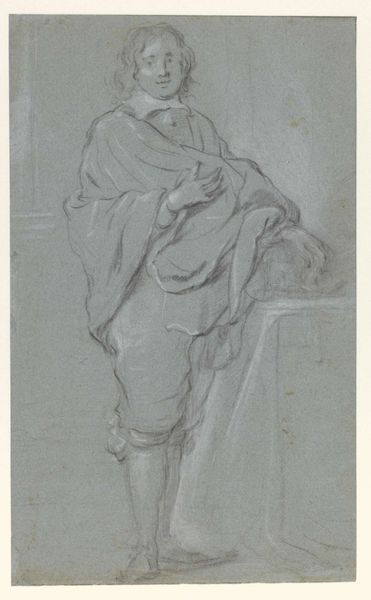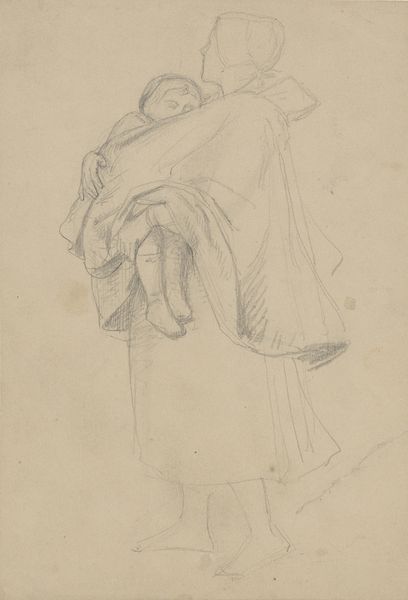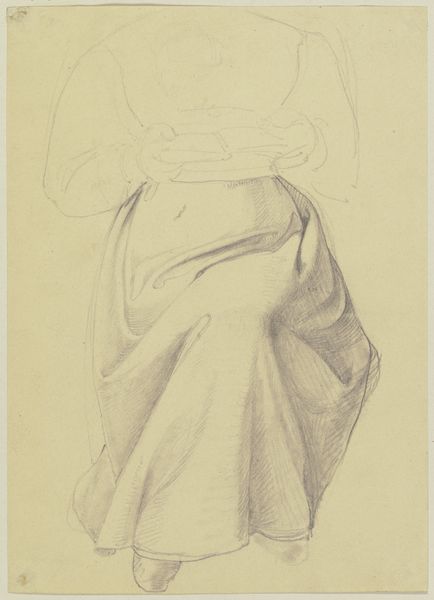
drawing, pencil
#
portrait
#
drawing
#
self-portrait
#
pencil
#
academic-art
#
realism
Copyright: Public Domain
Editor: This is Victor Emil Janssen's "Self-Portrait as a Full Figure with a Drawing Board," created around 1842 using pencil. It’s a pretty delicate drawing, and there’s something very composed and almost… contemplative about it. How do you interpret this work? Curator: I see a compelling intersection of identity and artistic practice. Here, we have Janssen, representing himself in the act of creation. But let's think critically about representation. How does Janssen, a male artist in 1842, choose to portray himself? Editor: He seems almost… romanticized, maybe? With that robe and the soft light. Curator: Precisely. The choice of attire, the soft focus – these are deliberate decisions that construct a certain image of the artist. Consider how societal expectations and artistic conventions might have influenced Janssen's self-representation. Who was he trying to be? How does that fit into the history of self portraiture? Editor: That’s fascinating. It’s not just *him*; it’s him performing a role, almost. Curator: Exactly! And what does that tell us about the power dynamics inherent in art creation and the construction of artistic identity, especially considering the historical limitations placed on marginalized artists? Editor: So it’s not just a simple self-portrait but also a statement—or even a negotiation—within the art world of the time. I hadn’t thought about it that way before. Curator: Seeing art through this lens—questioning the choices, unpacking the context—that's where it becomes truly exciting and relevant. Editor: Definitely. I'm going to start questioning so many portraits from now on! Thanks!
Comments
No comments
Be the first to comment and join the conversation on the ultimate creative platform.
